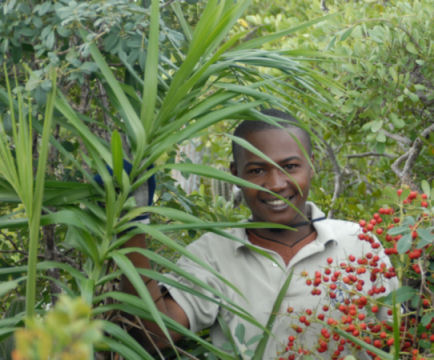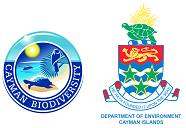

 The Caribbean region is considered to be one of the world's 25 biodiversity hotspots. Its islands are home to over 11,000 plant species, with significant numbers of regional endemics and monotypic genera.
The Caribbean region is considered to be one of the world's 25 biodiversity hotspots. Its islands are home to over 11,000 plant species, with significant numbers of regional endemics and monotypic genera.
Many of the region's natural habitats are under intense pressure, largely as a result of unsustainable land-use and uncontrolled development causing fragmentation, modification or degradation. Increasing threats come from climate shifts, leading to rising sea levels and severe weather events, and from invasive plants, animals and microbes. Compounding the situation further and preventing effective conservation is that the conservation status for the majority of Caribbean plant species is unknown or ambiguous due to incomplete botanical inventory or discrepancies in base-line taxonomic information.
A working checklist of Caribbean UK Overseas Territories (UKOTs) is urgently needed for the Caribbean. For this reason, achieving targets 1 and 2 of the Global Strategy for Plant Conservation (GSPC), was identified as the region's top priority by the Caribbean Regional GSPC Workshop in Montserrat in 2006. The Project is assembling existing information into a central data-base to assist in the compilation of the plant species lists and red-lists needed to meet GSPC Targets 1 and 2. The Scoping Study's results will inform the development of a proposal for a targeted implementation project, aimed at supporting a larger network of regional stakeholders.
The project brings together the conservation expertise and botanical resources of RBG, Kew and other Herbaria, as well as Caribbean UKOTs and SIDS. The Scoping Study's objectives for GSPC Targets 1 and 2 in the Caribbean are to assess existing resources and capacity within individual UKOTs and selected Small Island Developing States (SIDS) in the Caribbean and to identify the resources and expertise needed to achieve the Targets, both in individual countries and regionally.
The UKOTs Programme has collated plant species information to produce a checklist of Caribbean UKOTs plant species. Base-line taxonomic data was collated from a number of sources including regional and local floras, published and un-published checklists, as well as recent UKOT field collections. However, much of the taxonomy from these references is out-of-date and needs to be up-dated for inclusion into the species checklist of Caribbean UKOTs. Great progress has been made by checking plant-names against the most-up-to-date sources, such as RBG, Kew's 'World Checklist Series', as well as expertise provided by Kew's family specialists in Asteraceae, Leguminosae, Orchidaceae and Poaceae. Current taxonomic information has also been sourced from the Missouri Botanic Garden's 'Tropicos' Database and the Smithsonian Institute's Catalogue of Caribbean Flowering Plants. Additionally, historic UKOTs plant specimens from Kew's Herbarium are being databased into the UKOT Specimen and Species Database (link to other project page) and high resolution images of these specimens are being produced.
A draft preliminary red-list of seed plants from the Caribbean UKOTs is already highlighting species of conservation importance and will enable a detailed red-listing exercise to take place. The information will be made available through the Electronic Plant Information Centre (ePIC) and used to update the International Plant Names Index and World Checklist of Plants.

The Scoping Study for Species Red Listing in the Caribbean is funded by the Overseas Territories Environment Programme (OTEP), a jointly run programme between the Foreign & Commonwealth Office (FCO) and the Department for International Development (DfID).
 The Study is facilitated by the UK Overseas Territories Programme, based at the Royal Botanic Gardens, Kew (RBG, Kew) in association with the Cayman Islands Department of Environment.
The Study is facilitated by the UK Overseas Territories Programme, based at the Royal Botanic Gardens, Kew (RBG, Kew) in association with the Cayman Islands Department of Environment.
Please use the links below to see further details on red listing activities in UK Overseas Territories.